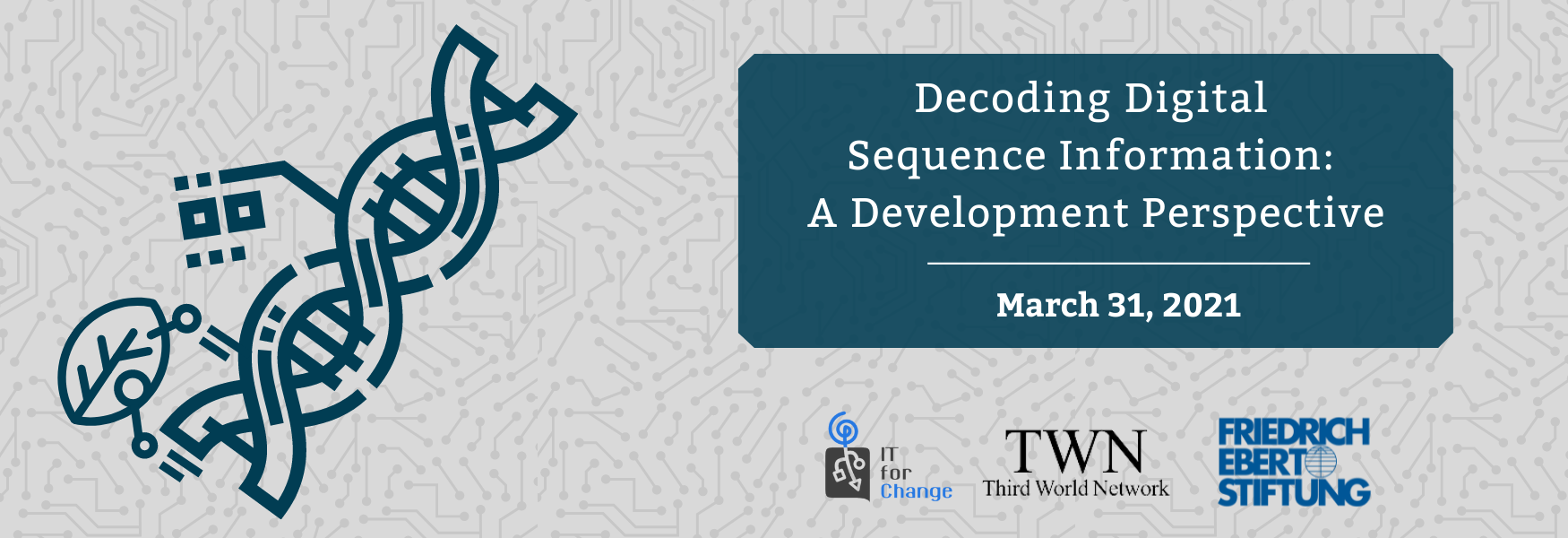
IT for Change and Third World Network are co-hosting a learning session on "Decoding Digital Sequence Information: A Development Perspective", with support from Friedrich-Ebert-Stiftung on Wednesday, March 31, 2021.
The session aims to equip scholars and activists to understand the issues at stake for the global governance of digital genomics. It is being organized in response to the need for informed perspectives in the lead-up to the UN Biodiversity Conference, 2021.
Big Data technologies have transformed genomic sciences, with algorithms that can simplify the synthesis of genomes. According to industry predictions, the digital bio-revolution could have an annual economic impact of USD 2-4 trillion in the next two decades. The global digital genome market is already a multi-million dollar industry encompassing diagnostics, agriculture and animal research, personalized medicine, drug discovery, and treatment analysis. The multi-faceted nature of digital genomics implicates various key development and global governance issues, from biodiversity to health, agriculture, and food sovereignty.
This learning session will provide an account of the debates on "digital sequence information" -- a term that is used to indicate the digitalization of genetic sequence information -- in relation to the Convention on Biodiversity. It will unpack the key development issues and concerns for the Global South, including the urgent need to grapple with the wholesale capture of data by corporations, and flag the possible directions forward – normative and political – for the democratic global governance of digital genomics.
The two hour session will be kicked-off with presentations from leading activists including Chee Yoke Ling (TWN) and Edward Hammond (Prickly Research), with a follow-up discussion. It presents a unique opportunity for actors interested in digital and development justice to come together and discuss these crucial issues.
